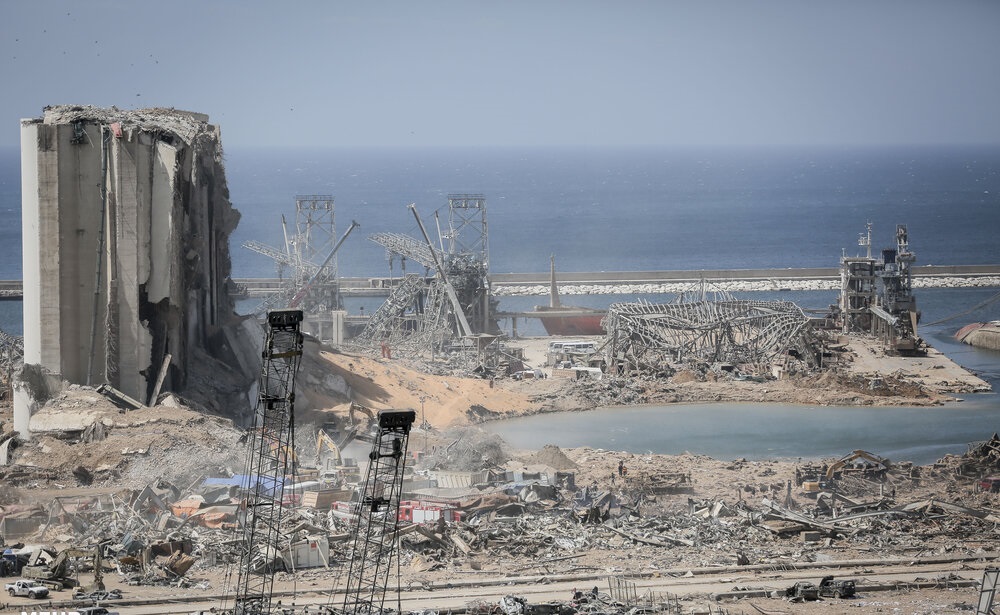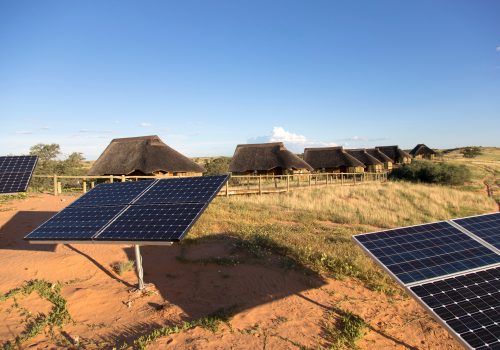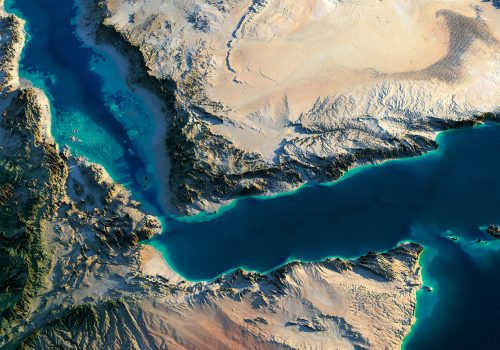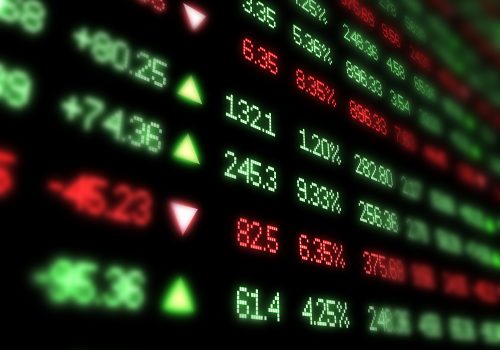The cataclysmic explosion at Beirut’s port on August 4th could not have come at a worse time. The nation was already reeling from multiple catastrophes such as a collapsing currency, an environmental disaster on its shores, 1.5 million refugees from Syria, and a healthcare system pushed to the brink by the COVID-19 pandemic. The country is in such bad shape that the military can no longer afford to feed meat to its troops.
Beirut Governor Marwan Abboud estimated the explosion caused over $5 billion in damage, killed over two hundred people, injured thousands, and forced 300,000 people onto the streets. Compounding the immediate damage is that 85 percent of Lebanon’s cereals were in the silos next to the explosion’s epicenter, leaving the country with less than a month’s worth of grain reserves, according to its Economy Minister Raoul Nehme. Oil prices jumped immediately afterwards over fears of renewed regional instability, although they have since leveled off.
Crises tend to magnify other crises, and this tragedy at the port is no exception. The explosion has only exacerbated one of Lebanon’s core calamities: the lack of stable electricity. Currently, rescue efforts at the port after the explosion have been stymied by a lack of electricity. Following the blast, dozens of protestors tried to storm the Ministry of Energy but failed. Indeed, as the World Bank recently reported, power—or the lack thereof—sits at the beating heart of the country’s generational fiscal crisis. Only by addressing it in the long-term can the country begin to dig itself from its present circumstances.
The problems with power long predate the current series of disasters. Beirut and Lebanon had been suffering rolling blackouts, with some exceeding 20 hours a day. Fuel oil powers much of Lebanon’s inefficient power stations, but an ugly disagreement earlier this year between Beirut and Algeria’s state energy company Sonatrach over accusations that the firm delivered defective fuel has disrupted those links.
Moreover, mass protests focused on energy access forced a government from office late last year, in a nation where almost half the power generated by the decrepit state power company, Electricité du Liban (EdL), is stolen. A conglomerate of illegal generator operators fill its citizens’ other energy needs, which means many households pay two different electricity bills to keep the lights running, the electrical pumps working, and the Wi-Fi on. Huge Turkish-owned barges generate electricity offshore as a stop-gap measure but also cause significant environmental damage as they belch diesel fumes that drift back to shore.
The Lebanese government subsidizes power by $1-2 billion annually, mostly to fuel oil. Over time, according to the International Monetary Fund, these subsidies to EdL have accounted for about 40 percent of the country’s debt. Despite the collapse of the Lebanese pound and a severe shortage of dollars, the bills still need to be paid, and the costs are passed down to an increasingly infuriated Lebanese citizenry.
Lebanon’s policymaking elite’s well-known corruption and financial mismanagement around energy are having deeper consequences. Last month, Rafik Hariri University hospital announced it was turning off the air conditioning in various wings in order to conserve power, in a humid climate where the temperature is usually in the mid- to upper-80s. Continued widespread chaos as Lebanon heads into the hottest month of the year remains quite a real threat.
Even the international community’s best intentions cannot ameliorate Lebanon’s energy crisis. A little more than two years ago, Lebanon won $11 billion in loans and grants to develop core infrastructure, but so far, there has been little to show.
The lack of progress is most likely due to the intricately-constructed political system designed to provide Lebanon’s various religious and ethnic factions a seat at the table, which often means that parochial interests take priority over efforts to reform the energy sector, build new plants, and turn the lights on again. The port explosion may have caused the government to resign, but the scaffolding that underpins Lebanon’s political system will likely remain mostly unchanged.
This is likely why French President Emmanuel Macron issued a warning to Lebanon’s political elite on his visit to Beirut last Thursday: “When times are tough, [France] will be there to provide assistance. But we will not write a blank check. A blank check to a government that has no faith in it from its people.”
A modern state and economy cannot run without reliable energy. Absent consistent political will among the elite factions in power to devise a strategy to unravel this problem, as well as to devote the sustained financial resources to do so, the country will remain in a rolling blackout for years to come.
Aki Peritz is an author and former CIA analyst. His forthcoming book, “Blessed Operation,” is about the largest counterterrorism investigation in history.
Related EnergySource content

The Global Energy Center develops and promotes pragmatic and nonpartisan policy solutions designed to advance global energy security, enhance economic opportunity, and accelerate pathways to net-zero emissions.
Image: Damages after 2020 Beirut explosions (mehdi shojaeian/Wikimedia Commons)



